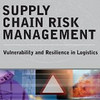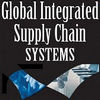 One of the regular readers of my blog alerted me to an article in the NY Times titled Slow Trip Across Sea Aids Profit and Environment. As it turns out the Danish shipping giant Maersk has halved its top cruising speed over the last two years, thus cutting fuel costs, cutting emissions and perhaps cutting disruptions costs, too? After all, if you know that your shipment will arrive late, you are perhaps less concerned with not being just in time?
One of the regular readers of my blog alerted me to an article in the NY Times titled Slow Trip Across Sea Aids Profit and Environment. As it turns out the Danish shipping giant Maersk has halved its top cruising speed over the last two years, thus cutting fuel costs, cutting emissions and perhaps cutting disruptions costs, too? After all, if you know that your shipment will arrive late, you are perhaps less concerned with not being just in time?
Slow is better?
In today’s fast-paced business world, where speed is king and where many customers are willing to pay high premiums for overnight package delivery, Maersk has found a new niche: Slow Steaming. By halving its top cruising speed over the last two years, Maersk cut fuel consumption on major routes by as much as 30 percent, greatly reducing costs.
“The previous focus has been on ‘What will it cost?’ and ‘Get it to me as fast as possible,’ ” said Soren Stig Nielsen, Maersk’s director of environmental sustainability. “But now there is a third dimension,” he said. “What’s the CO2 footprint?” Traveling more slowly, he added, is “a great opportunity” to lower emissions “without a quantum leap in innovation.”, and in what reads as a commentary on modern life, Maersk advises in its corporate client presentation, “Going at full throttle is economically and ecologically questionable.”
For the sake of the planet, slow steaming is better. For the sake of you wallet it is better, too.
Slow is more reliable?
Obviously, carriers that think traditionally will resist the idea of slowing down, and argue that speed is indispensable to serving their clients. But is it really? If slow steaming is the rule, it creates a buffer zone in which speed can be increased to meet delivery times. If speed steaming is the rule there is simply no slack for catching up a schedule that is running late. Ergo: slow is more reliable.
To adjust or not to adjust?
Super slow shipping involves adjustments. According to the NY Times article,
Maersk had to prove that slow speeds would not damage ship engines in order to maintain engine warranties that did not cover such slow travel. Moreover, customers have to factor in extra time for delivery, which can be problematic for time-sensitive products. Maersk has also shouldered the labor costs of having crews at sea for longer periods and added two ships on its Germany-to-China route to maintain scheduled deliveries. But those expenses were canceled out by decreased fuel costs.
Maersk is now working with customers, hoping to slow more boats. Customers will be charged variable rates depending on speed. It remains to be seen how many customers will jump the bandwagon…ehrrr ship, in order to save costs, save the planet, and perhaps save the annoyances and disruptions that used to come with a speedy delivery. Now that it is a slow delivery, there are perhaps less worries?
Sustainable Shipping
Maersk Line was named Sustainable Shipping Operator of The Year 2009 for challenging the shipping industry and bringing about significant reductions in energy consumption and emissions. The award, presented by Sustainable Shipping was given to Maersk Line in recognition of the efforts it has made in reducing the environmental impact of its business operations.
Pirates?
Since I posted this, an interesting pattern has emerged. There is an increasing number of searches involving “slow steaming” and “pirates”. So, while slow steaming is good for the environment it also makes you more vulnerable to attacks by pirates…a classic dilemma.
Academic value
This blogpost was cited in Zhang Z, Chee-Chong, T and Wang X (2014) Optimality properties of speed optimization for a vessel operating with time window constraint. Journal of the Operational Research Society (2015) 66, 637–646 DOI: 10.1057/jors.2014.32
Links
- nytimes.com: Slow Trip Across Sea Aids Profit
- maerskline.com: Maersk Line wins award for super slow steaming initiative
Related
- husdal.com: Risk and vulnerability in maritime supply chains
|
» Call |
Maersk Line wins award for super slow steaming initiative16 July 2009 Maersk Line is proud to be named Sustainable Shipping Operator of The Year for challenging the shipping industry and bringing about significant reductions in energy consumption and emissions. The award, presented by Sustainable Shipping ( » http://www.sustainableshipping.com) at an awards ceremony in London on 15 July, was given to Maersk Line in recognition of the efforts it has made in reducing the environmental impact of its business operations |












